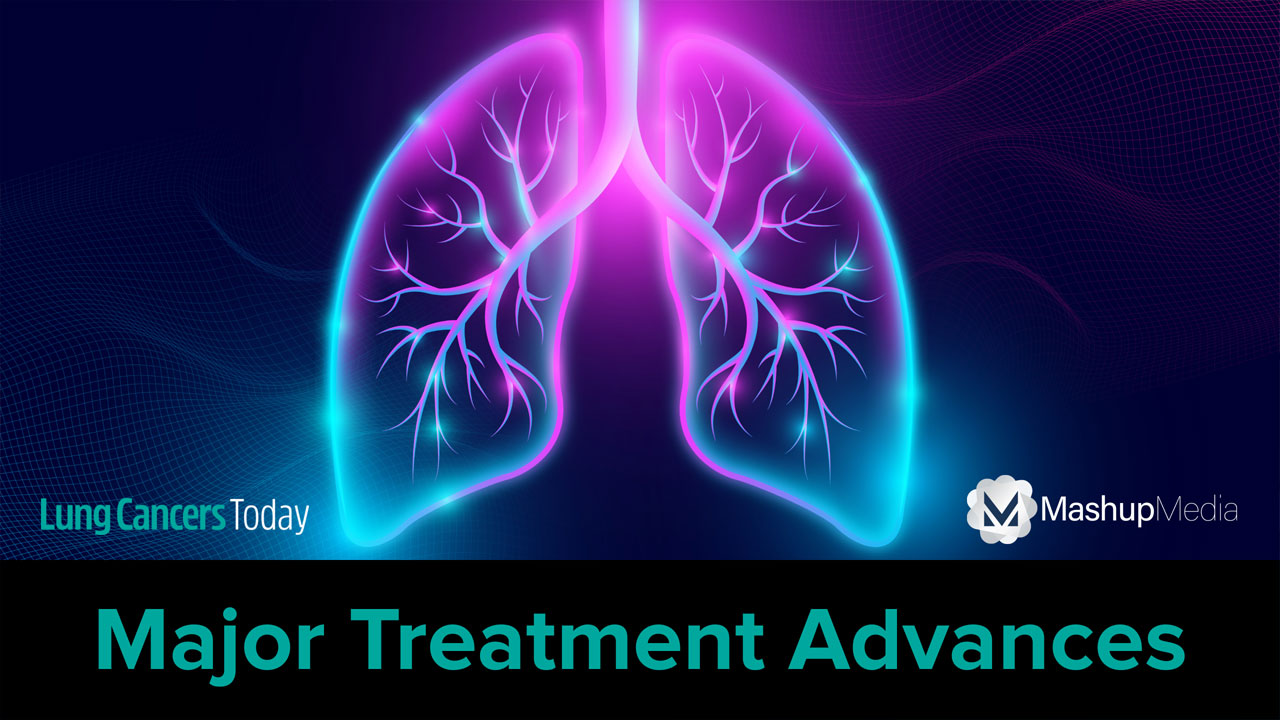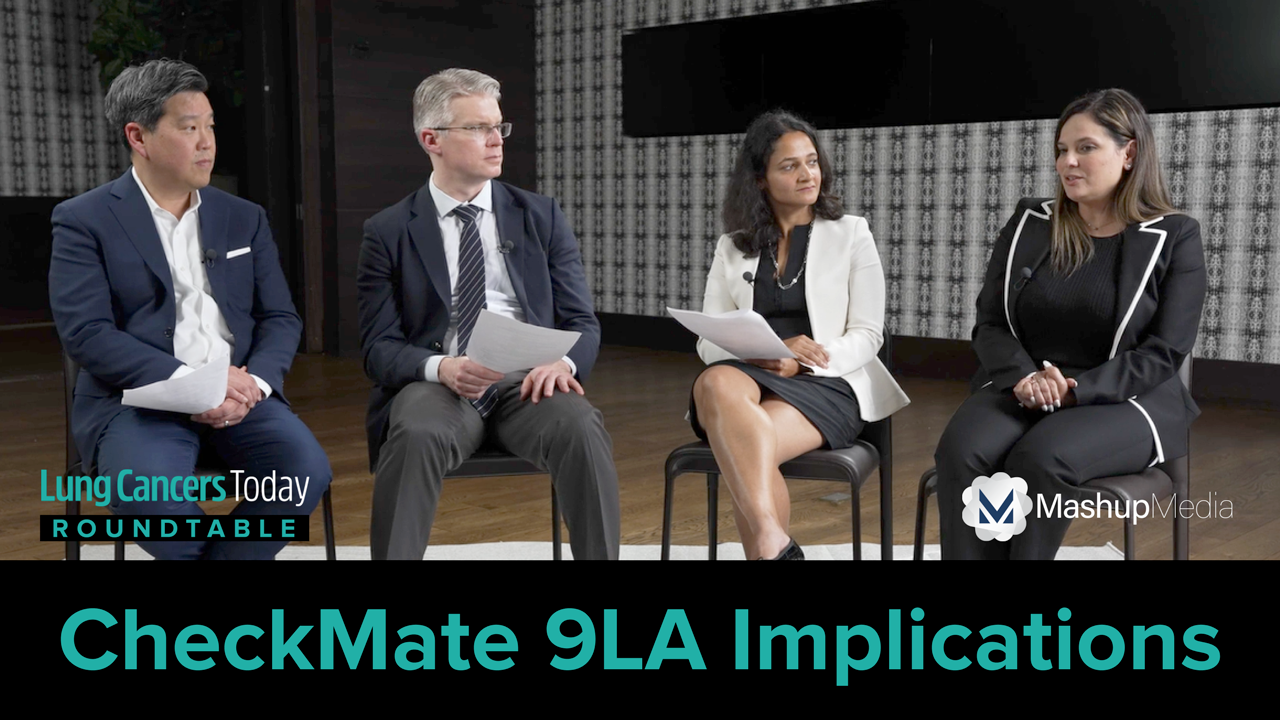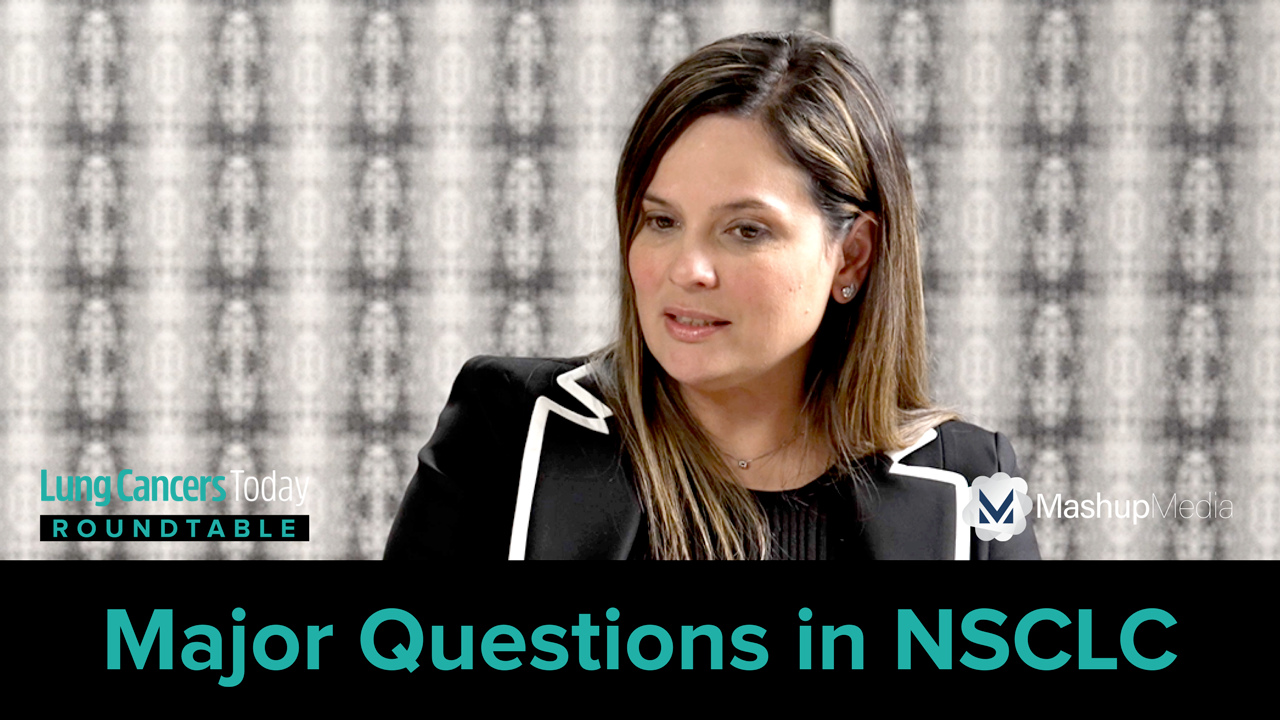David Spigel, MD, on How the Phase 3 ADRIATIC Trial Changes the Standard of Care for LS-SCLC
By David R. Spigel, MD, Cecilia Brown - Last Updated: June 6, 2024David R. Spigel, MD, a medical oncologist and the chief scientific officer at Sarah Cannon Research Institute, discusses his plenary presentation on the phase 3 ADRIATIC session during the 2024 American Society of Clinical Oncology Annual Meeting.
The presentation, which received a standing ovation at the meeting, featured practice-changing data in limited-stage small cell lung cancer (LS-SCLC).
“I had the privilege of presenting ADRIATIC,” Dr. Spigel said. “ADRIATIC is a phase 3 trial evaluating the role of immunotherapy when used as consolidation after chemoradiation in [LS-SCLC].”
He explained the importance of the advancement in treatment for LS-SCLC.
“[LS-SCLC] is a difficult diagnosis. We haven’t made really any great strides in several decades in that treatment,” Dr. Spigel explained. “The standard of care has been giving chemotherapy and radiation together, but even when patients get that, most will have cancer come back within 2 years and relatively few will live beyond 5 years.”
The double-blinded and placebo-controlled global study evaluated durvalumab plus or minus tremelimumab in 730 patients with stage I-III LS-SCLC who had not progressed after concurrent platinum-based chemoradiotherapy.
Dr. Spigel explained the design and content of the primary analysis that he presented during the plenary session at the annual meeting.
“The analysis I presented, the primary analysis, was of durvalumab versus placebo,” he said.
“That analysis included 2 primary end points, overall survival [OS] and progression-free survival [PFS] by blinded independent central review. There are secondary analyses planned for the durvalumab-tremelimumab arm, but those data sets remain blinded and will be revealed at a future analysis.”
The study met its primary end point of OS, with a hazard ratio (HR) of 0.73, which represented a 27% reduction in the risk of death for patients receiving durvalumab compared with those who received placebo, Dr. Spigel said. He also highlighted that the median OS was 22.5 months longer in patients receiving durvalumab than in those receiving placebo.
“That’s a nearly 2-year…improvement in [OS], a major finding for patients,” he said.
The study also met its secondary planned primary end point, as durvalumab significantly improved PFS compared with placebo, showing an HR of 0.76, representing a 24% improvement in the chance of cancer recurrence or dying from cancer, he said. Dr. Spigel also spoke about the safety findings from the trial.
“The regimen was well tolerated,” he said. “Most of the toxicity seen—actually in both arms, about 23% in each arm—was due to radiation pneumonitis.”
Dr. Spigel explained the big-picture clinical implications of the safety and efficacy results from the phase 3 ADRIATIC study.
“The ADRIATIC study hit both of its primary end points, both [OS] that was improved with an advance of nearly 2.0 years… and [PFS that] was improved with an advance of about 7.4 months,” he said. “The regimen was safe, and these results will translate into durvalumab being a new standard of care. Patients with [LS-SCLC] who get chemoradiotherapy should then get up to 2 years of durvalumab, a great advance for our patients.”
Dr. Spigel shared his hopes for the future of treatment for patients with LS-SCLC.
“We want to try to cure as many patients as we can who have limited-stage disease, and chemoradiation therapy can be quite effective, but it’s just not good enough,” he said. “To have a 2-year improvement in median [OS] is really a remarkable improvement, [but] it’s not enough. We’re going to have to use this as a new kind of benchmark to build upon.”
Dr. Spigel spoke about what may be on the horizon for SCLC as the treatment landscape for limited-stage lung cancer evolves.
“There’s so much excitement with what we’re learning about antibody-drug conjugates, with other immunotherapy strategies, and potentially one day having a targeted approach to [SCLC],” he concluded. “Maybe this can be a new platform [upon which] future research can be based.”







 © 2025 Mashup Media, LLC, a Formedics Property. All Rights Reserved.
© 2025 Mashup Media, LLC, a Formedics Property. All Rights Reserved.